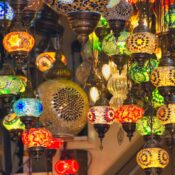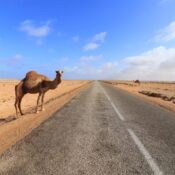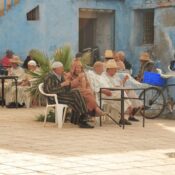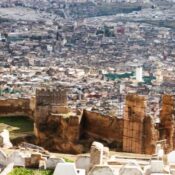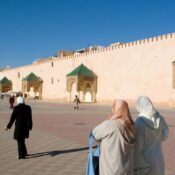
Essential Morocco Travel Tips for First-Time Visitors
Traveling to Morocco for the first time is an exciting adventure filled with history, vibrant culture, diverse landscapes, and warm hospitality. From the bustling souks of Marrakech to the serene blue streets of Chefchaouen and the vast Sahara Desert, Morocco has something for every type of traveler. However, as with any new destination, being well-prepared is essential to ensure a smooth and memorable journey. Here are essential travel tips for first-time visitors to Morocco that will help you make the most of your trip.
Understanding Moroccan Culture and Etiquette
Morocco is a country deeply rooted in tradition, where cultural values play an important role in daily life. Respecting local customs will not only enrich your experience but also help you connect better with locals.
- Greetings and Respect: When meeting someone, a simple handshake or polite greeting is appreciated. In rural areas, locals may prefer a hand over the heart as a sign of respect.
- Dress Modestly: While Morocco is more liberal than some other countries in the region, modest clothing is highly recommended, especially in rural towns and religious sites. Women often prefer wearing scarves and loose clothing to avoid unwanted attention.
- Photography Etiquette: Always ask before taking someone’s photo. Many Moroccans value their privacy and may refuse, especially in traditional settings.
- Hospitality: If invited into a Moroccan home, it is customary to bring a small gift such as pastries or tea. Refusing tea or food may be seen as impolite, so it’s best to accept with gratitude.
Currency and Money Tips
The Moroccan currency is the Moroccan Dirham (MAD). While credit cards are increasingly accepted in major cities, cash remains the most common method of payment, especially in souks, taxis, and small towns.
- Bring Cash: ATMs are widely available in cities, but smaller villages may not have easy access.
- Negotiation is Key: In Moroccan markets (souks), bargaining is expected. Start with half the offered price and negotiate politely until you reach a fair deal.
- Tipping Culture: Tipping is part of Moroccan hospitality. In restaurants, 5–10% of the bill is appreciated. Small tips for guides, drivers, and hotel staff are also customary.
Transportation and Getting Around
Morocco’s transportation system is varied, offering options from modern trains to traditional camel rides in the desert.
- Trains and Buses: Morocco’s national train company (ONCF) connects major cities like Casablanca, Rabat, Marrakech, and Fes. CTM and Supratours buses are reliable for longer journeys.
- Taxis: Petit taxis (small taxis) operate within cities and are inexpensive, but always make sure the meter is running. Grand taxis are shared vehicles for longer distances.
- Hiring a Driver or Guide: For first-time visitors, booking a private driver or local guide is one of the best ways to explore comfortably while learning about Morocco’s rich history and culture.
- Camel Treks: In the Sahara Desert, camel rides are a traditional way to travel across the dunes. Spending a night in a desert camp is a highlight not to be missed.
Food and Dining Tips
Moroccan cuisine is a highlight of any trip, filled with spices, flavors, and unique dishes that reflect the country’s diverse cultural influences.
- Must-Try Dishes: Tagine (slow-cooked stew), couscous, pastilla (savory-sweet pie), harira (traditional soup), and fresh seafood in coastal cities.
- Street Food: Tasty and inexpensive, street food in Morocco is safe to try if you choose busy stalls with high turnover.
- Water Safety: Stick to bottled or filtered water. Avoid ice cubes in drinks if you’re unsure of their source.
- Dining Etiquette: Meals are often shared. In traditional settings, eat with your right hand from the portion in front of you.
Language and Communication
Arabic and Berber (Amazigh) are Morocco’s official languages, while French is widely spoken in business and tourism. English is increasingly understood in tourist areas, though not as common in rural regions.
- Useful Phrases:
- Hello: Salam
- Thank you: Shukran
- Yes: Naam
- No: La
- How much?: Bsh-hal?
- Learning a Few Words: Even a small effort to speak Arabic or Berber is highly appreciated by locals and will make your interactions more rewarding.
Safety and Health Tips
Morocco is generally safe for tourists, but it’s always wise to take precautions.
- Petty Theft: Be cautious of pickpockets in crowded markets or tourist spots. Keep your valuables secure.
- Travel Insurance: Always have insurance that covers health, accidents, and theft.
- Health Precautions: Bring basic medicines with you. Pharmacies are common in cities but may be limited in remote areas.
- Solo Travel: Solo travelers, especially women, should stay in reputable accommodations and avoid walking alone late at night in quiet areas.
Shopping in Morocco
Shopping in Morocco is an unforgettable cultural experience. The souks are full of colorful textiles, handmade ceramics, carpets, spices, and traditional clothing.
- What to Buy: Moroccan rugs, argan oil, leather goods, lanterns, pottery, and jewelry are popular souvenirs.
- Bargaining Tips: Bargaining is not just about price but also a form of cultural exchange. Always smile, remain polite, and treat it as part of the experience.
Best Time to Visit Morocco
Morocco’s climate varies greatly depending on the region, making some seasons more suitable than others depending on your itinerary.
- Spring (March–May): Mild temperatures, blooming landscapes, and great weather for exploring cities and mountains.
- Autumn (September–November): Another ideal season with comfortable weather for both desert and city travel.
- Summer (June–August): Very hot, especially in the Sahara and southern regions. Best for coastal cities like Essaouira, Tangier, and Casablanca.
- Winter (December–February): Cold in the Atlas Mountains and desert nights, but pleasant in Marrakech and coastal areas.
Final Travel Tips for First-Time Visitors
- Be patient—things may not always run on strict schedules, but that’s part of Moroccan charm.
- Stay flexible—last-minute changes can lead to unexpected adventures.
- Respect traditions—being polite and curious will earn you the respect of locals.
- Consider guided tours—especially for the Sahara Desert or medina exploration, where local expertise makes a big difference.
For first-time visitors, Morocco is more than just a trip, it’s a journey through history, culture, and landscapes that feel timeless. With its UNESCO World Heritage sites, diverse traditions, delicious food, and welcoming people, Morocco promises an unforgettable cultural adventure. By keeping these essential travel tips in mind, you’ll not only travel more comfortably but also connect more deeply with the Moroccan way of life.
Whether you’re wandering through the narrow alleys of Fes, riding a camel into the golden Sahara dunes, or enjoying mint tea in Marrakech, Morocco will leave a lasting impression that goes beyond just travel it becomes a story you’ll carry forever.

